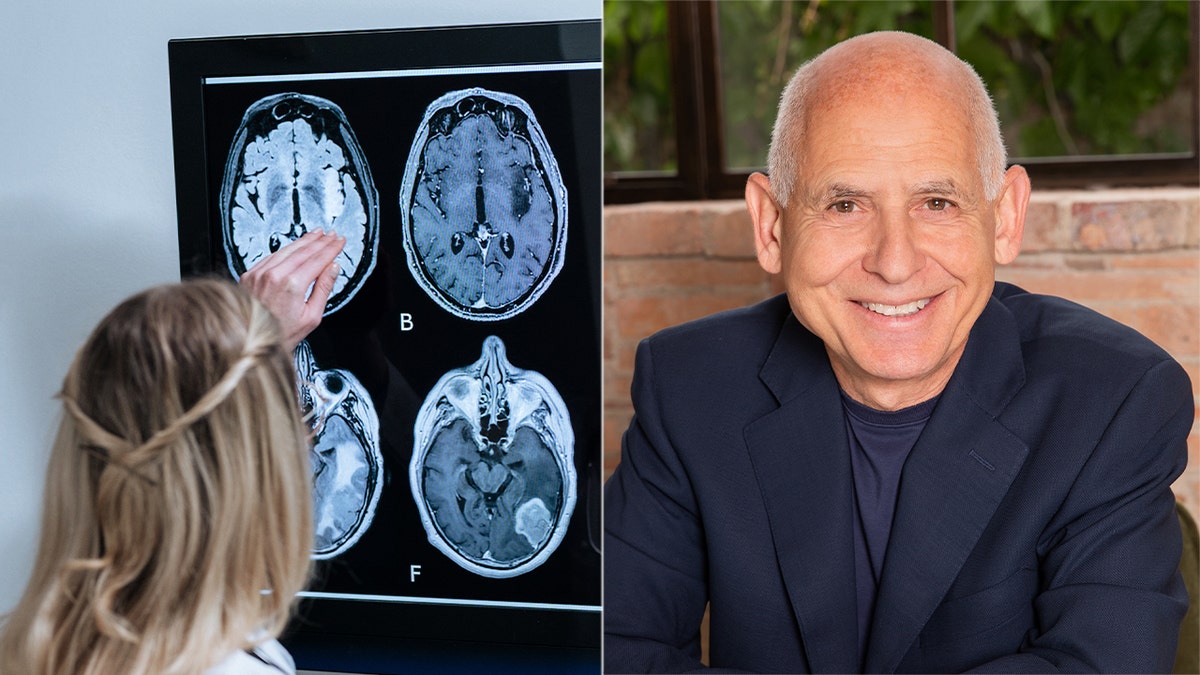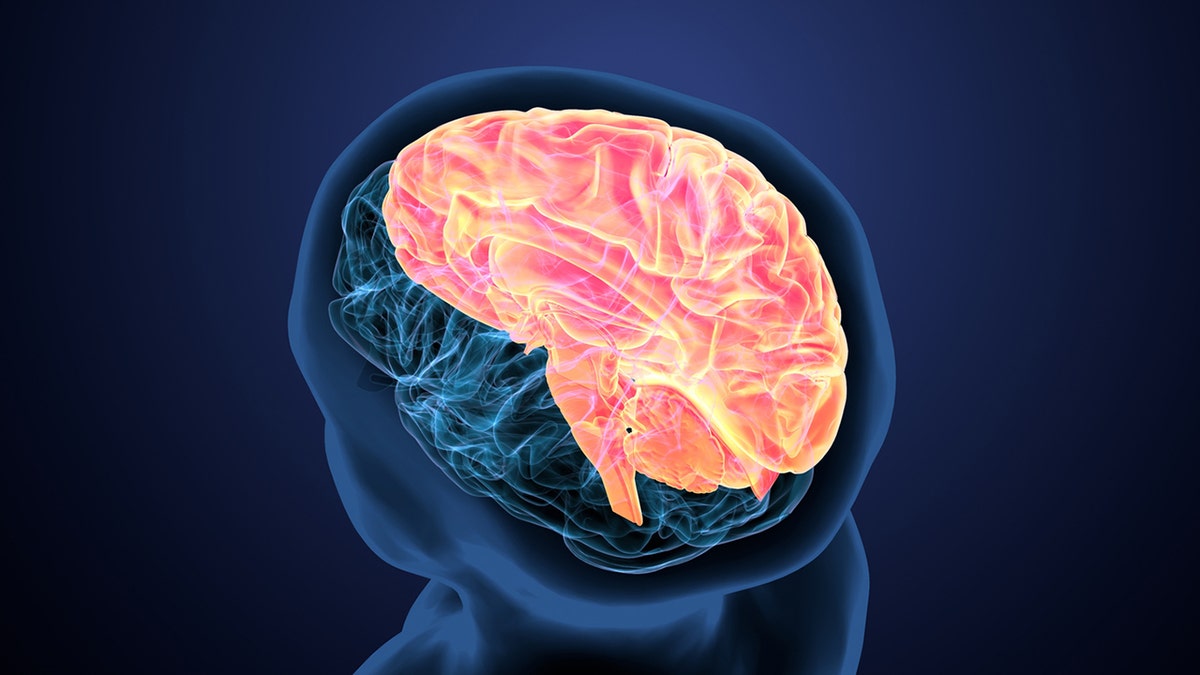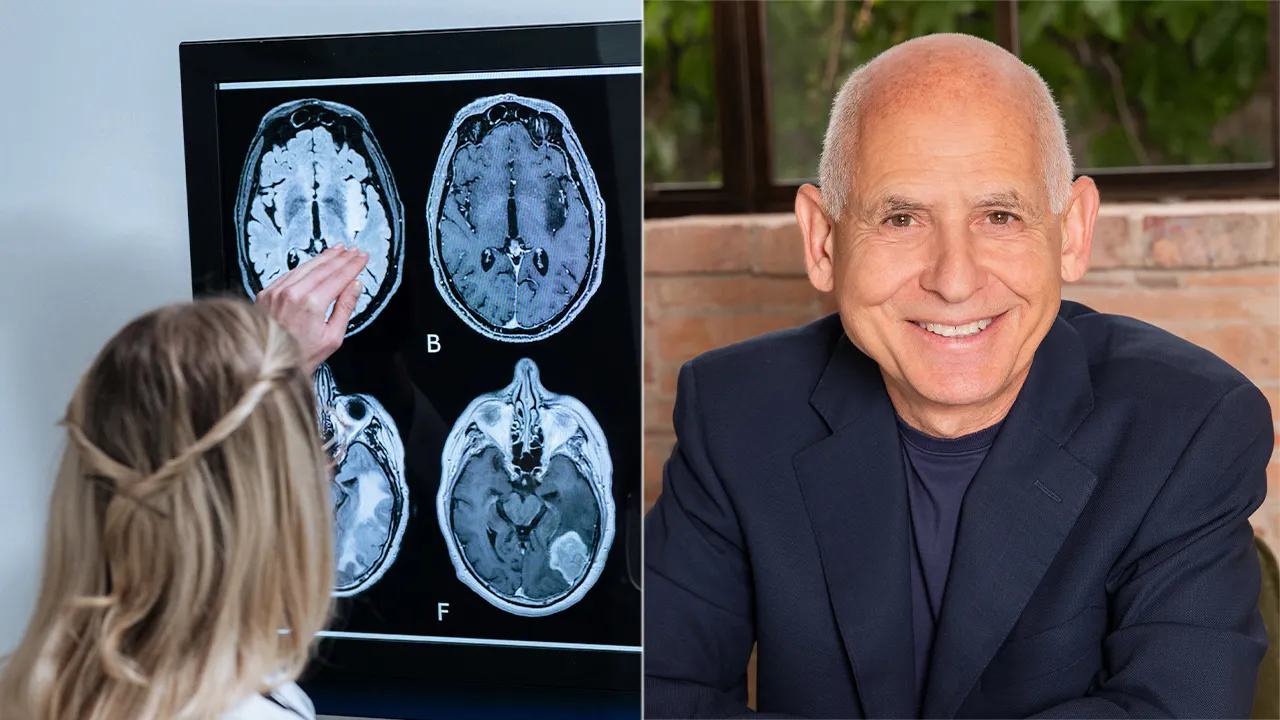NEWYou can now listen to Fox News articles!
Research developments in Alzheimer’s disease, including newly approved blood tests for early detection, have helped patients get diagnosed sooner.
As the common dementia has been on the rise among younger individuals, the spotlight is on ways to prevent or slow the disease.
Dr. Daniel Amen, a psychiatrist, brain imaging doctor and founder of Amen Clinics in California, spoke with Fox News Digital in an interview about Alzheimer’s risk and management.
FIRST BLOOD TEST FOR ALZHEIMER’S DIAGNOSIS CLEARED BY FDA
“Alzheimer’s starts in your brain decades before you have any symptoms,” he said. “So, a 59-year-old woman I diagnosed with Alzheimer’s disease likely had negative changes in her brain in her 20s.”
“It’s really never too early to think about protecting your brain and your mind.”

Dr. Daniel Amen (shown right) is the founder of Amen Clinics brain imaging facilities across the country. (iStock; Katie Levine)
Amen, who also authored the book “Preventing Alzheimer’s,” confirmed that half of Alzheimer’s cases are preventable, according to recent findings.
This can be done through nurturing brain health and treating the 11 major risk factors that “steal your mind,” he said.
“It’s really never too early to think about protecting your brain and your mind.”
To remember the factors that can help ward off Alzheimer’s, Amen created the acronym “BRIGHTMINDS” as follows.
B- Blood flow
Low blood flow is the No. 1 brain imaging predictor of Alzheimer’s disease, according to the doctor.
Alcohol, marijuana, caffeine, nicotine, sedentary behavior and excess weight or obesity can all decrease blood flow, thus should be avoided.

Low blood flow has been linked to brain complications, the doctor cautioned. (iStock)
To promote blood flow, Amen suggests “walking like you’re late,” which could entail walking 30 minutes a day — alternating between three minutes of normal walking and three minutes of fast walking.
“Do that five times for 30 minutes, and it increases blood flow to your brain,” he said.
R – Retirement and aging
Along with retirement and aging can come a slowdown in learning and cognitive activity, leading to a higher Alzheimer’s risk, Amen said.
‘I’M A NEUROLOGIST — HERE’S WHY DEMENTIA IS RISING AND HOW TO REDUCE YOUR RISK’
He encourages retirees to learn something new every day to keep the brain active and healthy.
I – Inflammation
Inflammation is a “major cause” of psychiatric issues, Amen revealed, as well as conditions like cancer, arthritis and heart disease.
Flossing is an easy way to reduce inflammation in the gums and help prevent gum disease, which is a gateway to brain disease, according to the doctor.

Flossing can help reduce inflammation in the gums and prevent disease, the doctor shared. (iStock)
G – Genetics
“Genes aren’t a death sentence,” Amen said. “What they should be is a wake-up call.”
The doctor said everyone should take steps to discover which diseases run in the family and then follow a daily prevention program.
STROKE, DEMENTIA AND DEPRESSION SHARE THESE 17 PREVENTABLE RISK FACTORS
“I have heart disease and obesity in my family,” he said. “I don’t have heart disease, and I’m not overweight. Why? Because I’m on an obesity heart disease prevention program every day of my life.”
H – Head Trauma
Concussions and head trauma are a “major cause” of psychiatric problems, Amen described, and should be avoided.
“Don’t text and drive,” he warned.
T – Toxins
Some well-known toxins like alcohol, marijuana and other drugs are known to have negative impacts on overall health.
But some not-so-obvious toxins can include lead, mold, mercury from fish, and even general anesthesia, Amen cautioned.

Some well-known toxins like alcohol, marijuana and other drugs are known to have negative impacts on overall health. (iStock)
“You always want to support your organs in detoxification,” he said. “Drink more water, as it helps flush things through your kidneys … eat more fiber for your gut, and hold the alcohol.”
Amen also suggested eating brassicas, which include vegetables in the cabbage family, as they have a detoxifying effect.
CLICK HERE TO GET THE FOX NEWS APP
The expert also highlighted the benefits of sauna use as a detox tool.
“The people who take the most saunas have the lowest incidence of Alzheimer’s disease,” he stated.
M – Mental Health
A healthy mental state will help support a healthier brain, experts agree.
“Stop believing every stupid thing you think,” Amen advised.
I – Immunity and Infections
Keeping your body healthy and immune from infections is key to overall health, according to Amen.
The doctor suggested optimizing vitamin D intake, which can help support the brain and immune system.

Keeping your body healthy and immune from infections is key to overall health, according to the doctor. (iStock)
N – Neurohormones
The brain specialist recommends having a hormone balance check done every year, as any imbalances can interfere with the brain and increase Alzheimer’s risk.
CLICK HERE TO SIGN UP FOR OUR HEALTH NEWSLETTER
D – Diabesity
“Diabesity,” a term referring to the parallel occurrence of obesity and type 2 diabetes, can be a major threat to overall health, the doctor warned.
“You really want to care about your weight,” Amen said.

Being overweight can decrease the size and function of the brain, research has shown. (iStock)
Weight and diet play an important role in brain health, as Amen’s research has shown that as weight increases, the size and function of the brain decreases.
“Genes aren’t a death sentence. What they should be is a wake-up call.”
“Being overweight, you automatically have 10 of the 11 risk factors, because being overweight lowers blood flow, accelerates aging, increases inflammation and changes your hormones in a negative way,” he said.
“Be mindful of only loving food that loves you back.”
For more Health articles, visit www.foxnews.com/health
S – Sleep
Sleep is crucial for a high-functioning mind, as an adequate night’s slumber “washes” the brain every night, Amen noted.
Better sleep translates to improved memory, energy, blood flow and decision-making, the doctor said, and should be a priority when working to prevent Alzheimer’s.








